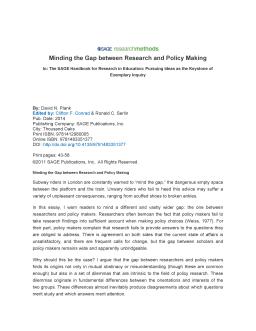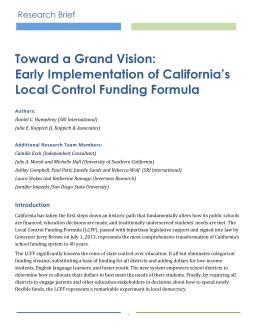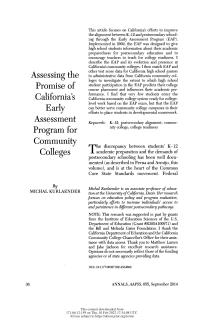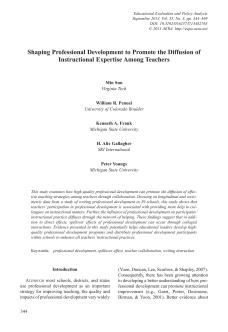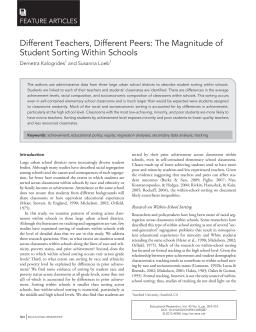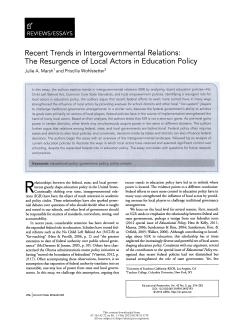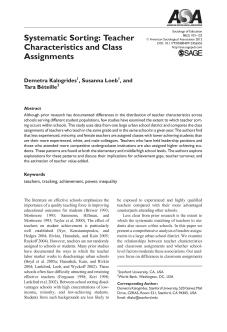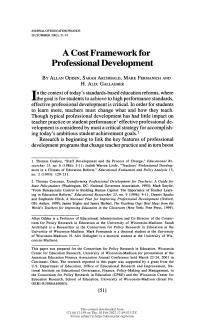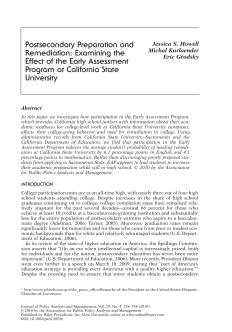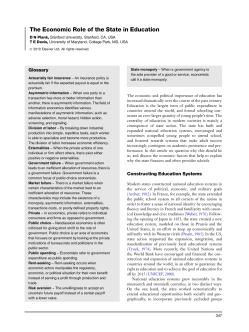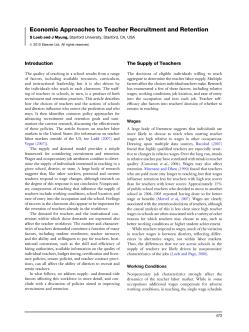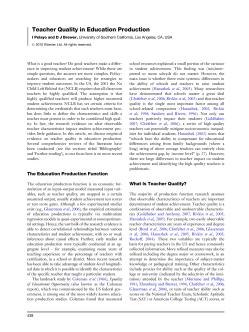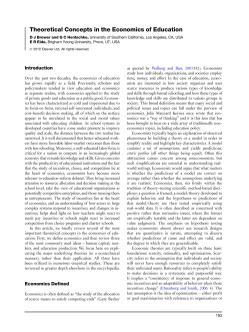Published
Summary
The gap between researchers and policy makers is a significant issue. Both sides agree that the current state of affairs is unsatisfactory, but fundamental differences between their orientations and interests inevitably lead to disagreements about which questions merit study and which answers merit attention. The gap finds its origins in intrinsic dilemmas of policy research, making it wide and apparently unbridgeable.
Early Implementation of California's Local Control Funding Formula
Published
Summary
California's Local Control Funding Formula (LCFF) represents a major shift in the state's education system by empowering school districts to allocate funding based on the needs of their students, with added funds for disadvantaged students. The LCFF eliminates categorical funding streams and promotes local democracy by requiring stakeholder engagement. The implementation of the LCFF is still in its early stages, and this study examines how school districts are using their newfound budget flexibility and engaging stakeholders, as well as identifying opportunities and challenges.
Published
Summary
This article discusses California's Early Assessment Program (EAP) to improve alignment between K-12 and postsecondary education. EAP provides high school students with information about their academic preparedness for college and encourages teachers to teach for college readiness. Findings show that EAP participation predicts college course placement but few students are ready for college-level work based on the exam. EAP can better serve community college campuses in placing students in developmental coursework.
Published
Summary
This study examines how high-quality professional development can promote the diffusion of effective teaching strategies among teachers through collaboration. Drawing on longitudinal and sociometric data from a study of writing professional development in 39 schools, this study shows that teachers’ participation in professional development is associated with providing more help to colleagues on instructional matters. Further, the influence of professional development on participants’ instructional practice diffuses through the network of helping. These findings suggest that in addition to...
The Magnitude of Student Sorting Within Schools
Published
Summary
This study examines patterns of sorting across classrooms within schools in three large urban school districts. Students are sorted across classrooms by race, poverty status, and prior achievement. Sorting is smaller within schools than across schools, but is still significant, particularly at middle and high school levels. Lower achieving students tend to have more poor and minority peers and less experienced teachers, exacerbating inequalities.
The Resurgence of Local Actors in Education Policy
Published
Summary
This article analyzes recent education policies to explore trends in intergovernmental relations. The authors argue that federal efforts to exert more control have actually strengthened the influence of local actors, creating a bidirectional relationship between federal, state, and local governments. Local actors have retained and asserted significant control over schooling, despite the expanded federal role in education policy. The article concludes with questions for future research and practice.
Teacher Characteristics and Class Assignments
Published
Summary
This study examines teacher sorting within schools in a large urban district. It finds that less experienced, minority, and female teachers are assigned lower-achieving students than their more experienced, white, and male colleagues. The authors discuss the implications for achievement gaps, teacher turnover, and teacher value-added estimation.
Published
Summary
Effective professional development is essential for achieving ambitious student achievement goals in standards-based education reforms. While research has identified key features of effective programs, many districts still offer unfocused and ineffective professional development that wastes limited resources. To deploy effective strategies, districts must first know how much they cost. This article aims to develop an analytical framework for organizing professional development costs and providing a common language for discussing programs.
Examining the Effect of the Early Assessment Program at California State University
Published
Summary
This study analyzes the impact of the Early Assessment Program (EAP) on the college-going behavior and remediation needs of California high school juniors. Results show that EAP participation reduces the need for remediation at California State Universities by 6.1 percentage points in English and 4.1 percentage points in mathematics. The program does not discourage poorly prepared students from applying to college but rather encourages them to increase their academic preparation in high school.
Published
Summary
This article explores the reasons why education has become a central focus of modern societies and the largest public expenditure around the world. The state has built and expanded national education systems, made attending school mandatory, and linked adult success to academic performance. The article delves into the economic factors behind state financing and provision of schools.
Published
Summary
This article discusses how teacher recruitment and retention affect the quality of teaching in schools. The supply and demand model, including wages and non-pecuniary job attributes, influences the supply of potential and current teachers. The demand for teachers depends on factors such as student enrollment and institutional constraints such as hiring authorities' skill and efficiency. The article identifies common policy approaches to improve recruitment and retention and summarizes current research on their effectiveness.
Published
Summary
Policymakers aim to improve student outcomes through the hiring of highly qualified teachers, but there is little consensus on what qualities make a teacher "good." Research on teacher characteristics that impact student achievement is inconclusive. This article examines recent empirical evidence on teacher quality in education production.
Published
Summary
Economics of education has grown in importance over the past two decades, as education is viewed as a critical factor in a nation's economic success. Economics can help improve the productivity of educational institutions by focusing on incentives, choice, and competition. The article reviews important theoretical concepts in the economics of education, including human capital, markets, and education production, and how they have been used in empirical studies.
